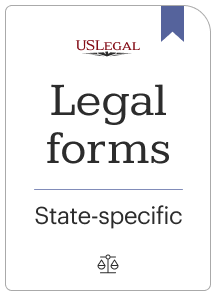

An affidavit is statement of facts which is sworn to (or affirmed) before an officer who has authority to administer an oath (e.g. a notary public). The person making the signed statement (affiant) takes an oath that the contents are, to the best of their knowledge, true. It is also signed by a notary or some other judicial officer that can administer oaths, affirming that the person signing the affidavit was under oath when doing so. The Nevada Affidavit of Residency is a legal document used to verify an individual's residency in the state of Nevada. It is commonly used in various situations where proof of residency is required, such as applying for in-state tuition, voter registration, obtaining a driver's license, or qualifying for certain state benefits. This document serves as an affirmation by the applicant that they are a resident of Nevada and provides necessary evidence to support their claim. The affidavit typically requires the individual's full name, address, and other relevant personal information to establish their residency. There are different types of Nevada Affidavit of Residency, each designed for specific purposes: 1. In-State Tuition Affidavit: This affidavit is used by students who want to establish their residency in Nevada to qualify for in-state tuition fees at a college or university. It requires detailed information about the student's physical presence, financial independence, and intention to make Nevada their permanent home. 2. DMV Residency Affidavit: The Nevada Department of Motor Vehicles (DMV) requires individuals applying for a driver's license or identification card to provide proof of residency. The DMV Residency Affidavit is used to verify an applicant's residential address when other supporting documents may not be readily available. 3. Voter Registration Affidavit: To be eligible to vote in Nevada, individuals must establish residency in the state. The Voter Registration Affidavit is used to declare one's residency in Nevada and to register as a voter, ensuring participation in local, state, and national elections. 4. Proof of Residency Affidavit: This general affidavit is used in various situations where proof of residency is required. It can be used for government programs, employment verification, or any other circumstance where a person needs to provide a sworn statement confirming their Nevada residency. When completing a Nevada Affidavit of Residency, it is important to provide accurate and truthful information. False statements made in an affidavit can have serious legal consequences. Any supporting documents, such as utility bills, lease agreements, or tax returns, should be gathered and attached to the affidavit when applicable. In conclusion, the Nevada Affidavit of Residency is a crucial document for establishing and verifying residency within the state. Whether it is to qualify for in-state tuition, register to vote, obtain a driver's license, or access state benefits, the affidavit plays a vital role in proving an individual's Nevada residency.
The Nevada Affidavit of Residency is a legal document used to verify an individual's residency in the state of Nevada. It is commonly used in various situations where proof of residency is required, such as applying for in-state tuition, voter registration, obtaining a driver's license, or qualifying for certain state benefits. This document serves as an affirmation by the applicant that they are a resident of Nevada and provides necessary evidence to support their claim. The affidavit typically requires the individual's full name, address, and other relevant personal information to establish their residency. There are different types of Nevada Affidavit of Residency, each designed for specific purposes: 1. In-State Tuition Affidavit: This affidavit is used by students who want to establish their residency in Nevada to qualify for in-state tuition fees at a college or university. It requires detailed information about the student's physical presence, financial independence, and intention to make Nevada their permanent home. 2. DMV Residency Affidavit: The Nevada Department of Motor Vehicles (DMV) requires individuals applying for a driver's license or identification card to provide proof of residency. The DMV Residency Affidavit is used to verify an applicant's residential address when other supporting documents may not be readily available. 3. Voter Registration Affidavit: To be eligible to vote in Nevada, individuals must establish residency in the state. The Voter Registration Affidavit is used to declare one's residency in Nevada and to register as a voter, ensuring participation in local, state, and national elections. 4. Proof of Residency Affidavit: This general affidavit is used in various situations where proof of residency is required. It can be used for government programs, employment verification, or any other circumstance where a person needs to provide a sworn statement confirming their Nevada residency. When completing a Nevada Affidavit of Residency, it is important to provide accurate and truthful information. False statements made in an affidavit can have serious legal consequences. Any supporting documents, such as utility bills, lease agreements, or tax returns, should be gathered and attached to the affidavit when applicable. In conclusion, the Nevada Affidavit of Residency is a crucial document for establishing and verifying residency within the state. Whether it is to qualify for in-state tuition, register to vote, obtain a driver's license, or access state benefits, the affidavit plays a vital role in proving an individual's Nevada residency.